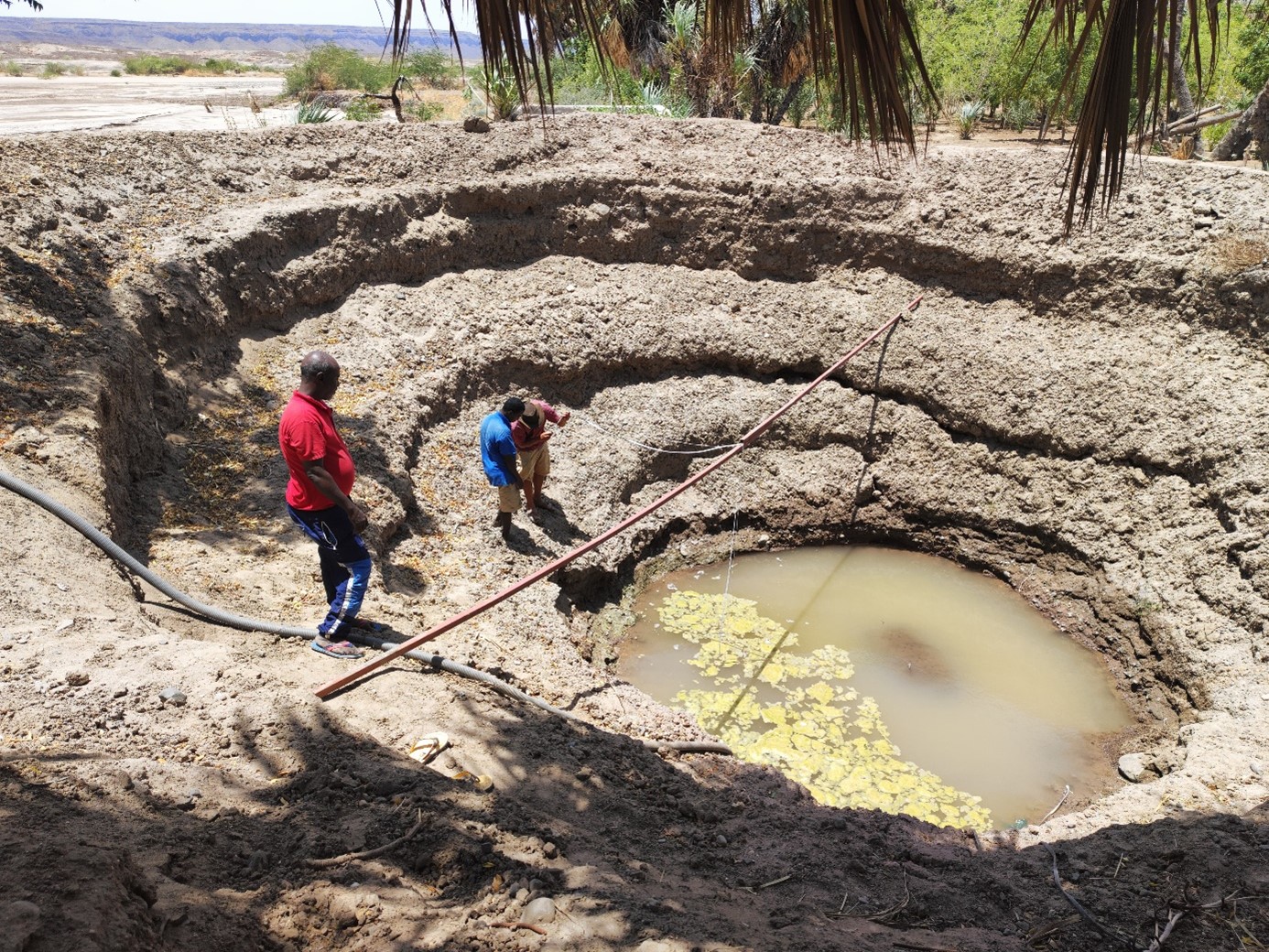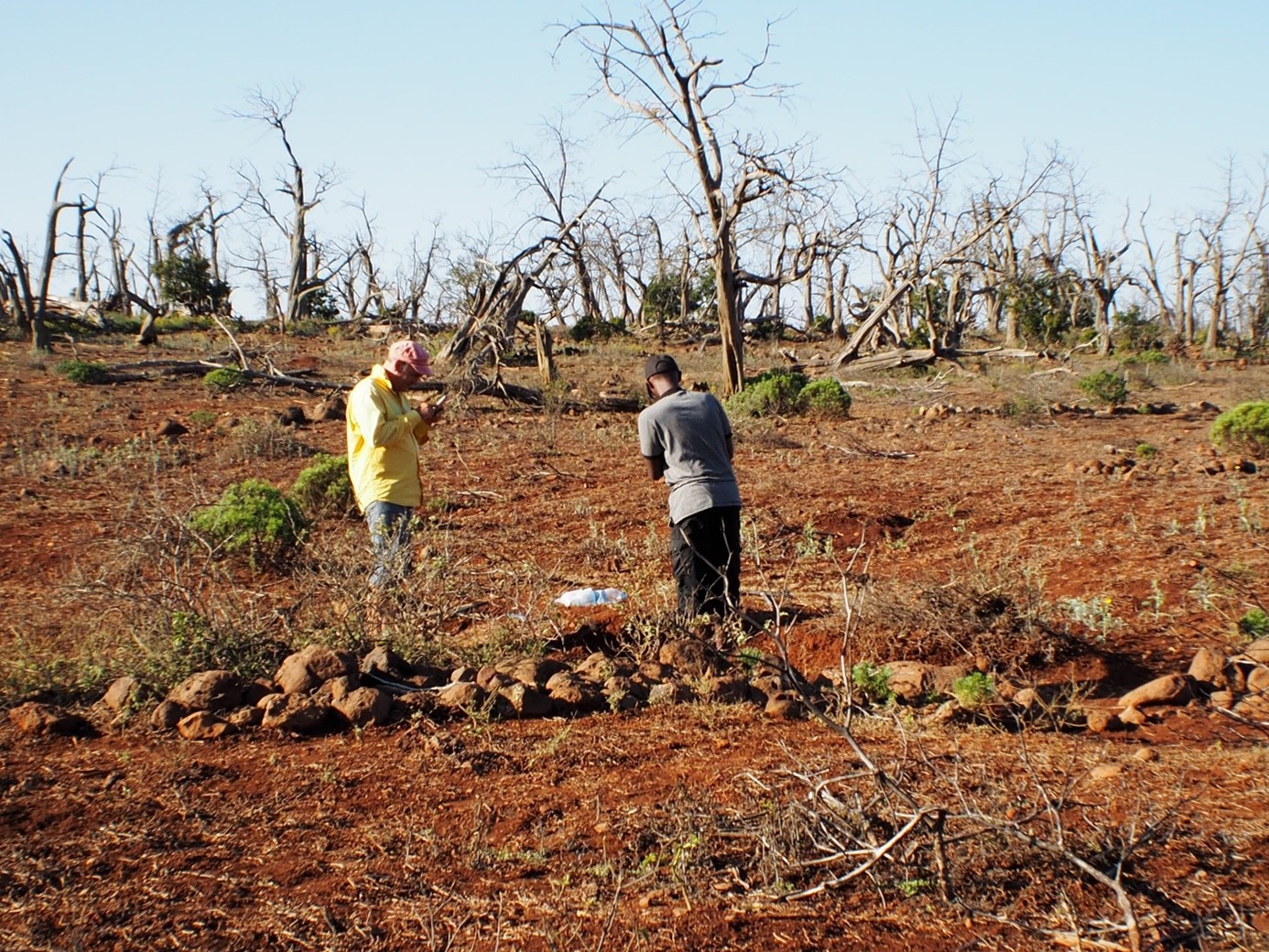Academy of Excellence "Territories, Environments, Risks and Resilience"
FLOods and Drought Hazards in East Africa
Investigating past and present major hydrological events and soil vulnerability in Djibouti to help prevent and mitigate the impact of floods and drought events in East Africa.
Academy 3 highlight
The Flodhea Project aims to provide the knowledge and tools to prevent and mitigate flood and drought hazards in East Africa, notably in Djibouti. It aligns with the transdisciplinary theme of the Academy by focusing on “hazard observation, understanding, and risk anticipation.” These efforts directly support UN SDGs 3, 6, and 13, emphasizing health, clean water access, and climate action.
The project
The project has three main objectives:
- Observation and measurement in shallow aquifers: This involves monitoring changes in groundwater levels during floods and droughts. Specialized sensors have been installed in agricultural pits and rivers to measure water level, temperature, and conductivity every 30 minutes for at least a year. This data will provide valuable insights into how hydro-climatic events affect groundwater resources.
- Palaeohydrological evolution: The project aims to understand hydrological changes in the region over the last 10,000 years. By studying river incision rates, we can estimate the intensity and timing of past extreme flooding periods. This historical data will be useful in the future for building predictive models of flood hazards in Djibouti.
- Soil cover degradation: The study aims to monitor soil systems to understand their pedological development, degradation, and vulnerability. Using sedimentological and geochemical techniques such as total organic carbon analysis, elemental geochemistry, and lithium isotopes on clay minerals, the project will reconstruct the history of soil cover degradation in semi-arid regions, specifically focusing on the Lake Abhe basin and the Day National Forest in Djibouti.


The +
The Flodhea Project is investigating the impact of rapid climate warming in East Africa, notably in Djibouti, where floods and droughts are becoming more frequent. It focuses on assessing how these extreme events affect water resources and soil development in semi-arid regions.
What’s next?
The Flodhea project should grow into a comprehensive program for addressing the region's pressing environmental challenges (in all East African countries, including Ethiopia, Uganda, and Kenya). Its results will serve as valuable inputs for developing numerical predictive models that will serve firstly, for collectively managing responses to floods and drought hazards in partnership with local institutions and NGOs, and secondly, for formulating sustainable development strategies in collaboration with local research centers in Djibouti.
Project information
|
Scientific domain
Earth and Environmental Sciences Natural Risks |
Key words Climate Change Floods Hazards Drought Hazards Soil Vulnerability Cities and societies |
|
Total budget
€13,600, including €6,300 from Academy 3
|
Students involved
Mohammed Abdillahi Robleh (Master) |
| Partners
Géoazur – Université Côte d’Azur, CNRS, OCA, IRD |
Project members Carlo Mologni Christophe Renac Benoit Viguier Osman Awaleh |
Scientific promotion of the project
Mologni C., Quand l’Afar était humide : Comment les changements climatiques modifient les paysages et les environnements à Djibouti. Conférence Grand Public à L’Institut Français de Djibouti en collaboration avec le Centre D’études et de Recherche de Djibouti le 27 Mars 2024.
https://social.numerique.gouv.fr/@umrGeoazur/112160733646068942

















